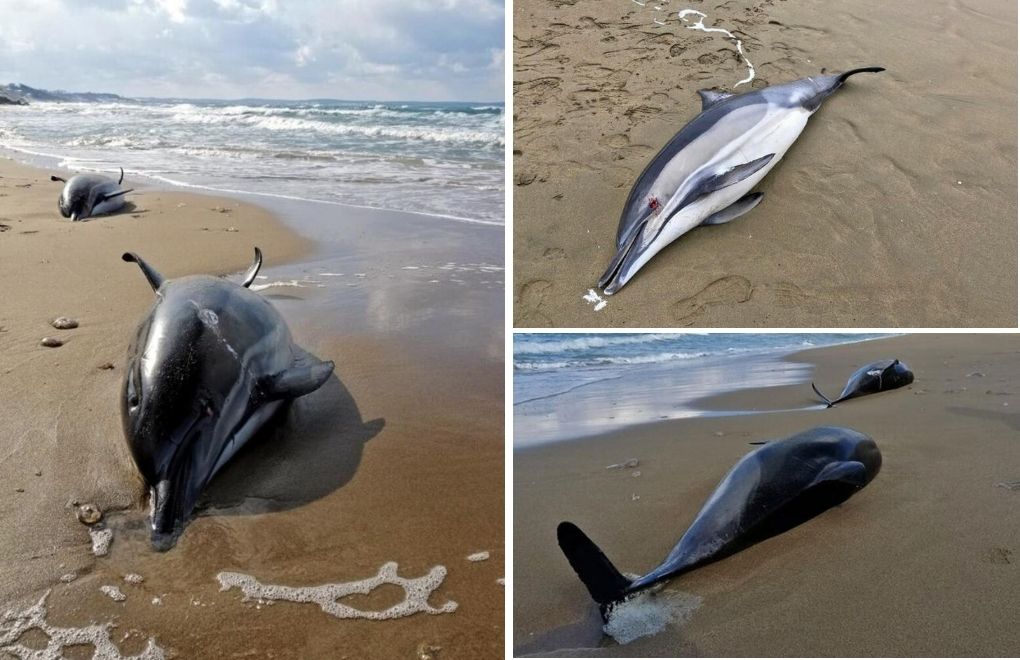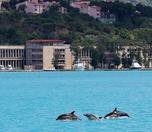Photo: Northern Forests Defense/Twitter
Click to read the article in Turkish
The Turkish Marine Research Foundation (TÜDAV) has reported an extraordinary increase in the deaths of common dolphins (Delphinus delphis) in the last month off Turkey's Western Black Sea shores.
The dolphins drowned after getting caught in fishing nets, the association said.
Since late February, there have been over 80 dolphin deaths, the foundation said, based on the news and reports it received through its hotline for mammals washed up on shores.
"The beaches where deaths are seen are from west to east are Ormanlı, Akpınar, Ağaçlı, Kısırkaya, Kilyos, Rumeli Lighthouse, Bosphorus, Kilyos, Sahilköy, Alacalı, Şile, Karasu, Zonguldak and Sinop, that is, the Western Black Sea coasts of Turkey," said TÜDAV.
Trawling and seine fishing are the methods which will most likely end up with dolphins getting caught in nets, the foundation noted, and warned fishers to reduce interaction with dolphins until April 15 when the fishing ban will begin.
The Coast Guard and the ministry should increase inspection activities in the region to prevent such occurrences, it added.
The Northern Forests Defense also called on the Ministry of Agriculture and Forestry to prevent dolphin deaths. "Industrial fish hunters have massacred 80 dolphins since the last week of February. Don't you see the dolphin massacre?" it wrote on Twitter.
Thirteen dolphins found dead in Sinop
Last week, 13 dead dolphins were found on the beach in Sinop province.
Sinop University Faculty of Fisheries started an inquiry to determine the cause of the deaths.
Uğur Özsandıkçı, a research assistant at the university, said, "We received reports of three washed-up dolphins. When we searched the area, we found seven more ... We went there the next day and found three more. So, we found that a total of 13 dolphins were washed up on the beach.
"... We have brought four of them to our faculty. The examinations will continue. It is too soon to say anything about why they died. I can say that it is nothing very unusual, but it is not an ordinary case for Sinop."
One animal they found had "strong signs" of being caught in a fishing net, the academic added. (TP/VK)






